What We’ve Learned from Fighting the COVID Infodemic with the UN
November 13, 2021
Over the past year and a half, Purpose and the United Nations have worked together to create Verified, which has become a global communications movement that empowers people around the world with science-based information- countering misinformation, cementing vaccine confidence, and building momentum for a global response that leaves no one behind.
Verified has collaborated with partners around the world to produce and distribute more than 2,000 pieces of content, from low-fi memes to music videos, in over 60 languages. Our work has reached well over 1 billion people and is one of the most significant communications efforts tackling COVID-19 worldwide.
Now, we are sharing our emerging insights with regards to the shifting communication needs around the world, in hopes that these learnings can be helpful in building other communications movements on critical issues. Here’s what we learned in the past 18 months fighting the infodemic:
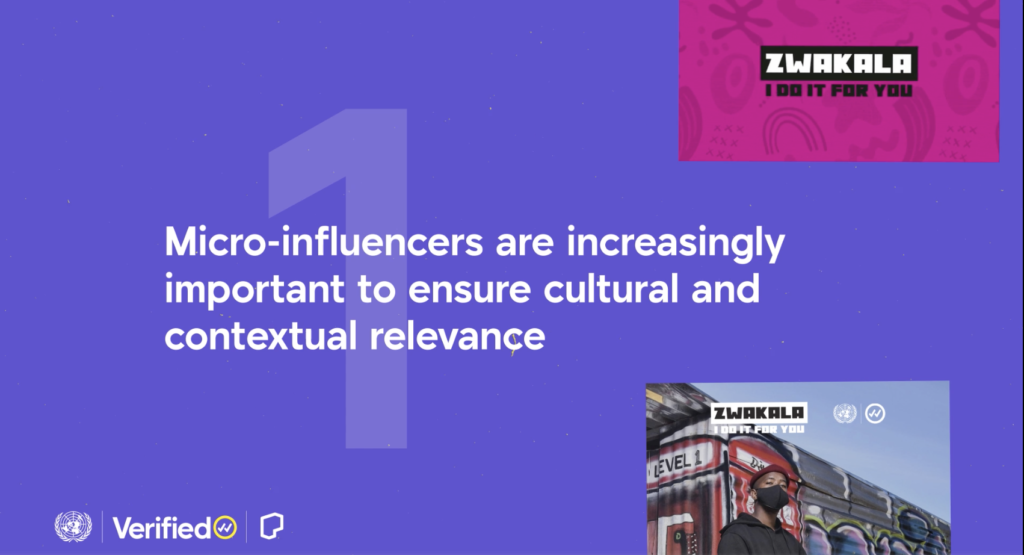
1. Micro-influencers are increasingly important to ensure cultural and contextual relevance
Micro-influencers are trusted messengers within their communities, and can also play a crucial role in shaping impactful communications campaigns. Partnering with these influential individuals can enable campaigns to engage people who may not be reached or receptive to standard public health communications campaigns that are designed for broad, general audiences. Co-creating programs and campaign materials with these highly engaged community members is an emerging strategy that can be leveraged to create contextually specific content that resonates, ensuring that vulnerable communities are equipped with accurate health information.
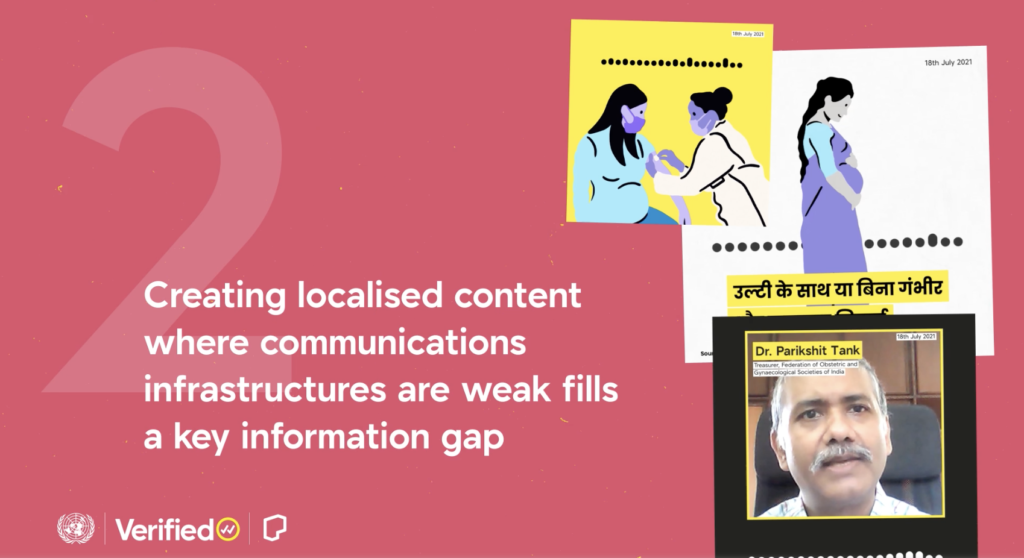
2. Providing localized content when communications infrastructures are weak fills a key gap
To reach the most vulnerable at scale, rather than creating new organisations or initiatives, it can be more effective to upskill and synchronise actors already working on the ground. Helping to fill information and resource gaps in established local communication infrastructure can be an efficient way to leverage existing networks of local organisations and influential individuals who have strong connections and trust with information-poor groups, and ultimately build trust and support for COVID-19 prevention behaviours and vaccinations.
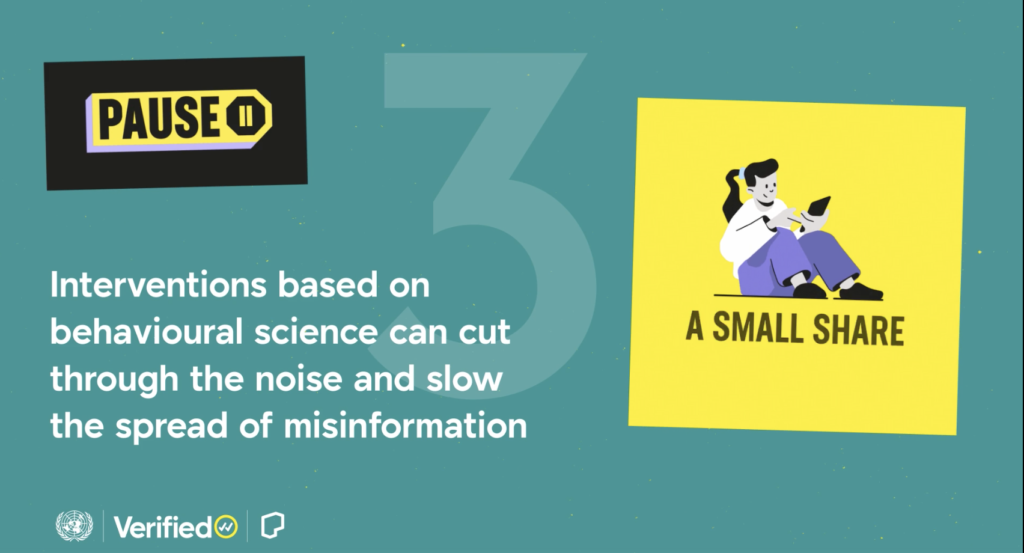
3. Interventions based on behavioural science can cut the noise and slow the spread of misinformation
Misinformation is a problem that is here to stay, and it has proved challenging for public health campaigns to combat. Many well meaning people have proven vulnerable to its influence, and inadvertently contribute to the spread through downstream content sharing. The work of behavioural scientists can inspire innovative campaign interventions and help to create friction to slow the spread of misinformation and protect people against its impact.
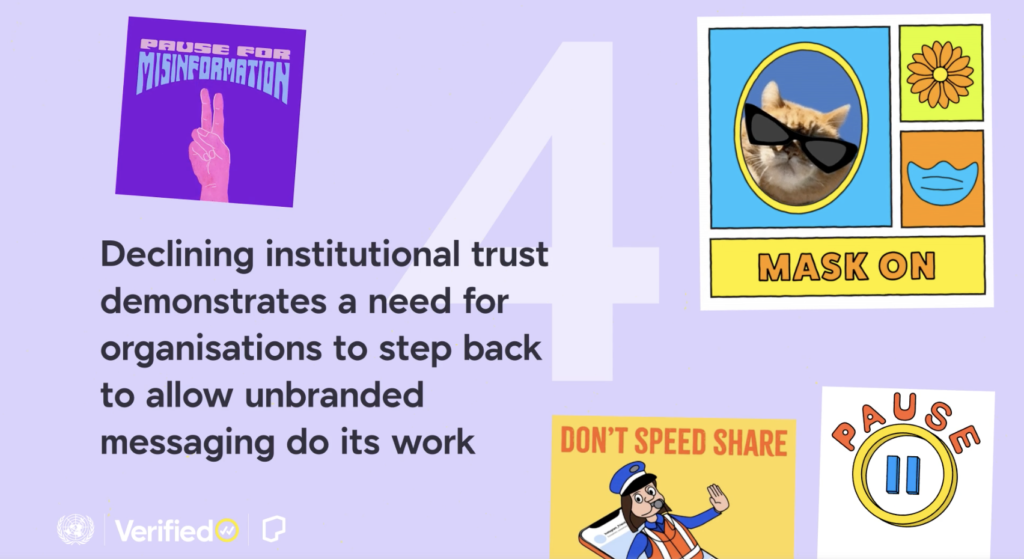
4. Declining institutional trust demonstrates a need for organisations to step back to allow unbranded messaging do its work
In order to be effective in an age of misinformation, institutions need to learn when to step back and allow others to do the talking. There are moments when the authority or legitimacy of an institution are needed. But one of the most important skills is knowing when your brand is going to invite more skepticism or mistrust, especially among those heavily steeped in conspiracies about the role of government or institutions in the pandemic.
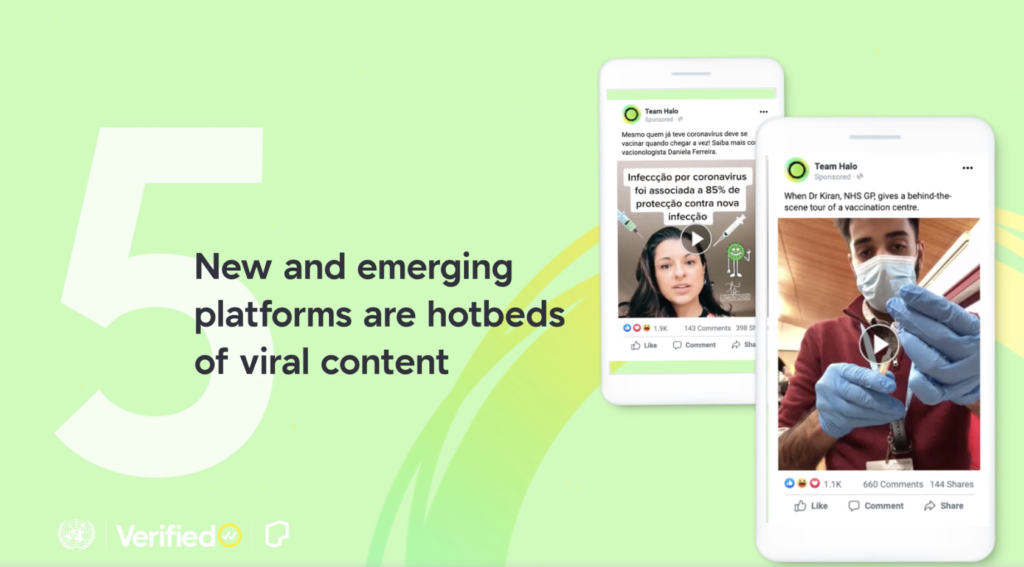
5. New and emerging platforms are hotbeds of viral content
Traditional public health communications are often slow to adopt and learn how to utilize new social media platforms, which are widely used by audiences that are difficult to reach on legacy platforms. Many of these platforms are designed to elevate individual influencers and messengers, and are difficult to penetrate with paid ads or other typical communications tactics. Training and mobilizing trusted messengers to be effective online influencers – particularly on emerging platforms – enables them to amplify their voice and effectively shift attitudes and behaviours in communities with high-levels of vaccine hesitancy and resistance to public health guidance.
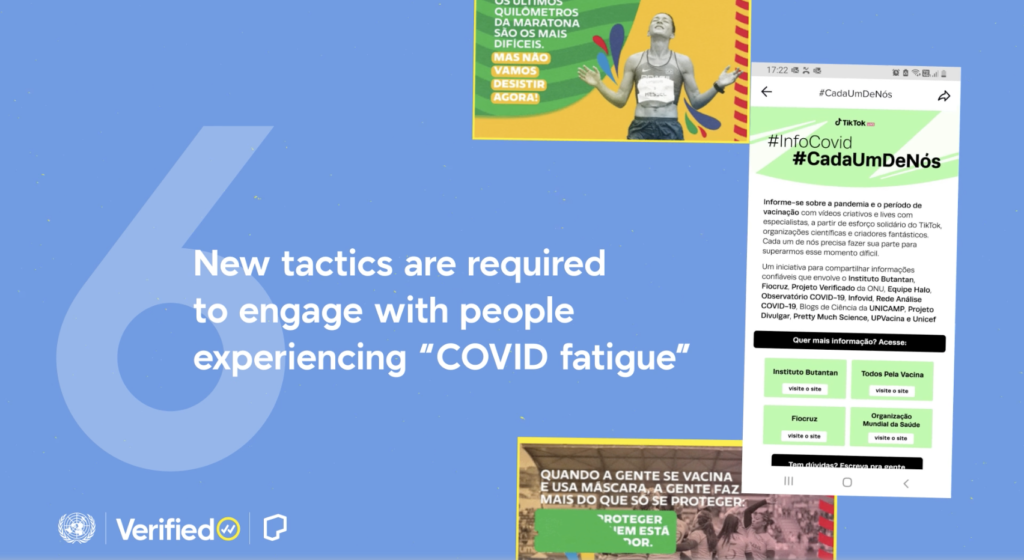
6. Novel tactics are required amongst people experiencing COVID fatigue
While COVID-19 fatigue affects people of all ages, young people are particularly impacted. They are more likely to underestimate the potential severity of COVID-19, and many are unable to work from home or may experience social pressure to ignore COVID-19 safety behaviours. Verified will keep innovating to reach this population – launching inspiring activations that align with young people’s passion and interests, and leveraging influential voices who can motivate these critical target audiences to adopt and maintain prevention behaviours.
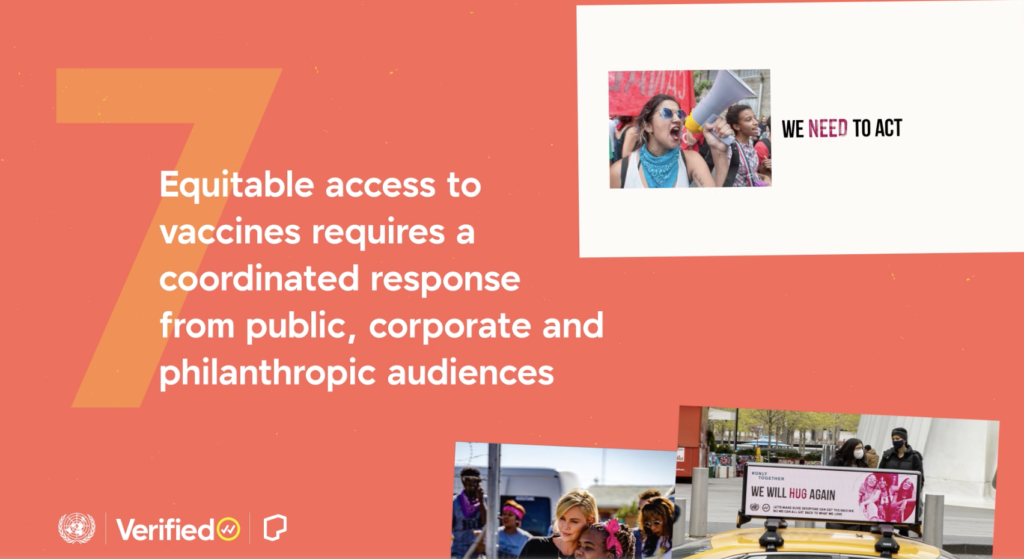
7. Equitable access to vaccines requires a coordinated response from public, corporate and philanthropic audiences
Many nations and communities around the world still have very limited access to COVID-19 vaccines. There is an urgent need to build political will for COVAX, to finance and distribute vaccines globally. The power of the private sector can be leveraged to improve vaccine equity and increase access equity. We are continuing to work closely with businesses and philanthropies, encouraging them to donate money, communicate, lend resources, or advocate for real, practical solutions to ensure that vaccines reach everyone, everywhere, as quickly as possible.
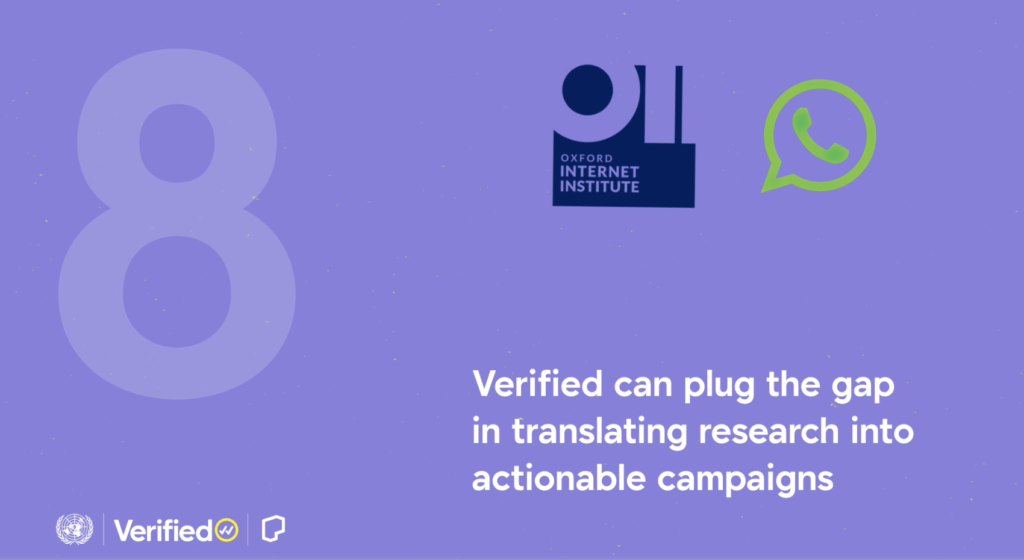
8. Verified can plug the gap in translating research into actionable campaigns
Government, civil society, corporates, and influential people around the world are working to combat the pandemic, but in many cases these efforts are not as effective as they could be. There is a clear need for actionable, timely, evidence-based tools to help campaigners tailor effective COVID-19 public health communication interventions, and to ensure that the most impactful research findings reach the people who need them most.
The United Nations and Purpose shared these insights and more in a virtual event bringing together our partners and collaborators to showcase Verified, as well as spotlight the regional Verified campaigns in India, South Africa and Brazil. You can watch the full event here.
As the world continues to confront its biggest challenge in living memory, there has never been a greater need for accurate, verified information. Like the virus itself, misinformation spreads from person-to-person, heightening the risk to health and spreading fear and division. Verified has reached well over 1 billion people with this accurate information, and will continue doing so as we continue into 2022.
Learn more about Verified here, and if you’d like to explore collaborations, reach out to us here.
for Equity & Evidence